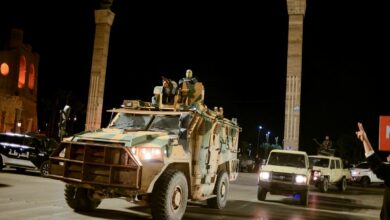
The Constituent Assembly is rushing to complete the new constitution as leaks and comments to the press start to bring several controversial articles more clearly into view.
Mohamed Mohey Eddin, head of the assembly’s Defense and National Security Committee, says several articles have been completed, and he expects a complete first draft by the third week of September. It will be released to the public before being put to a referendum.
Egypt Independent outlines the information about the draft available so far.
The military budget
“Parliament won’t discuss the details of the military budget to protect national security, but it can approve the final number decided by the National Defense Committee,” says Mohey Eddin, referring to a proposed committee that would be created by the constitution.
He says most of the Constituent Assembly’s members agreed on this point because of “the importance of the secrecy that should surround anything related to the Armed Forces.”
The National Defense Committee would consist of seven civilians and seven military figures in addition to the president, who would act as chairman. The civilians would be the prime minister and the defense, foreign, interior and finance ministers, as well as the speakers of the upper and lower houses of Parliament. The military figures would comprise the Armed Forces chief of staff and chief of operations, as well as the heads of the General Intelligence Services, military intelligence, Navy, Air Force and Air Defense Forces.
Strategic expert and retired army general Safwat al-Zayat harshly criticizes the proposal to protect the military budget from public discussion, saying military budgets are discussed in public around the world.
“We are in an open world now. Military budgets are not only discussed in public but published for everyone to see,” Zayat says, arguing that a secret military budget risks prioritizing military spending over civilian economic development. “Sometimes, the internal threat caused by deteriorating economic conditions and lack of social justice is much greater than any outside threat.”
Gamal Eid, director of the Arabic Network for Human Rights Information, a Cairo-based rights group, echoes Zayat, saying the Egyptian people have the right to know details of their own military’s budget.
“We know all the details on the budgets of different armies around the world and we know nothing about our own,” Eid says.
Mass protests erupted in November, partly directed against proposals for “supra-constitutional principles” that would protect the military in precisely this way. More than 40 civilians were killed.
Going to war
It had been proposed that the Supreme Council of the Armed Forces must approve the president’s decision to go to war, along with Parliament.
“Parliament’s decision is final, while the National Defense Committee’s opinion is advisory,” says Mohey Eddin. Eid hailed this article as a “positive” point in the proposed constitution.
Emergency powers
An article that gives the president the right to issue a decree to allow military forces to maintain security and order and to protect the state’s vital institutions in case there is “turbulence” within the country, after consulting the National Defense Committee, is still being debated.
“We are completely against the Emergency Law and involving the army in implementing it,” says Eid.
Egypt lived under the Emergency Law from 1981 to 31 May this year, when it was lifted by a SCAF declaration.
Military trials
Article 45 of the draft constitution states that the establishment of “exceptional courts” is “forbidden,” and guarantees that a civilian cannot be tried by a military court.
Ever since the SCAF took over power on 11 February, at least 12,000 civilians have been subjected to military trials, according to Eid and other rights groups.
Rights groups hailed the article as a step toward protecting civilian’s rights against the military, while expressing some reservations.
“The Emergency Law, which is being amended, could now suspend the implementation of this article and allow exceptional courts, like the Emergency State Security Court, to try civilians,” says Magda Boutros, criminal justice director at the Egyptian Initiative for Personal Rights, another rights group.
Peaceful protests
Other articles governed peaceful protests and “meetings” among citizens.
Article 17 of the freedoms, rights and public duties chapter states that “citizens have the right to meet without carrying arms and without having to give any previous notification. Security forces are not permitted to attend their private meetings. Public meetings, convoys and peaceful protests are the citizens’ right, and the law will regulate how notification is done.”
This article is similar to Article 59 in the 1971 Constitution, which talked about the freedom of holding private and public meetings without touching on peaceful protests.
Interior Minister Ahmed Gamal Eddin has stated that, according to a law now being drafted, the Interior Ministry must be notified before protests. The notification must include the organizers’ names and titles, the time and place of the protest and how long it will last.
However, Boutros argues that “protests could be an immediate response to a government policy and decision. It is not practical to notify the Interior Ministry three days before holding protests.”
She believes that the state should not interfere in the right to protest.
Religion and the state
Article 2, which governs the legal status of Islam, remains controversial among the Constituent Assembly members. Mohey Eddin believes most of the assembly members favor maintaining the 1971 article, which states that Islam is the religion of the state and the principles of Sharia are the main source of legislation.
There was also a proposal to cite Al-Azhar as an authority on the interpretation of Sharia, but it has been dropped. Mohey Eddin says Al-Azhar Grand Sheikh Ahmed al-Tayyeb refused to support the proposal. Some members fear Al-Azhar will fall under the influence of the government, as was said to have happened during Hosni Mubarak’s rule.
Salafi proposals that would grant Sharia greater legal importance have also been rebutted, and some members think Article 2 should be removed entirely. “Stating religious reference in constitutions allows the interference of religious dogmas into civil life and sidelines many factions in a country like Egypt, which has diverse cultures and religions,” argues Hany Ramses of the Maspero Youth Union, a Coptic organization.
There is, however, little support for such a position — both in the assembly and on the street.
Regime and authorities
The Constituent Assembly proposes what political scientists call a semi-presidential system. Mohey Eddin says the majority of assembly members approve of setting the presidential term to four years, while allowing a president to run for two terms.
The name of the People’s Assembly — the lower house of Parliament — would be changed to the House of Representatives, while the name of the upper house would be changed from Shura Council to the Senate.
The president would appoint a prime minister whose political program must be approved by the House of Representatives.
“Everybody [in Egypt] has suffered from tyranny, and we don’t want a president with too much power,” says Omar Ashour, director of the Middle East Institute at the University of Exeter and visiting fellow at the Brookings Doha Center.
However, he adds that there’s a downside to the mixed system. If the presidency and a majority in Parliament are held by opposing groups, a deadlock could emerge.
The House of Representatives would have the authority to question the Cabinet and to issue a vote of no confidence with the support of a parliamentary majority. The Cabinet would be compelled to resign following the issue of a vote of no confidence.
The Senate’s responsibilities are still being discussed inside the Constituent Assembly, Mohey Eddin says.
According to the current draft, he says, the president would be able to call for a popular referendum to disband the House of Representatives. The referendum would have to be held within 30 days of the president’s declaration, during which time the legislature would be suspended.
A controversial proposed article states that if the majority rejects the decision to dissolve the House of Representatives, the president must resign.
Constitution crowdsourcing
The official website for the constitution-drafting process, www.dostour.eg, allows visitors to submit comments on the draft. Just one section has been put on the website so far, titled “Rights, freedoms and public duties.”
Mohey Eddin says there is a special committee to review suggestions submitted through the website, which, as of Tuesday received comments from more than 40,000 people.
A comment can be posted on each article through a Facebook account or a submission in which the participant writes his or her full name, email address and National ID number.
Ahmed Gharbeia, information technology expert and activist, says he hopes the Constituent Assembly can take all suggestions into account. "The Constituent Assembly will need clear procedures to make use of the suggestions made through the website," he says. "It should be the job of a secretarial team to bring before the committee suggestions made though the website."
“Anyone should be allowed to leave their comments on the constitution without any restrictions. … What’s the logic behind leaving their National ID number?” he asks.
Iceland used social media last year to allow the public to participate in its own constitution-writing process. It held online discussions on the articles and streamed meetings live on the website and Facebook page.
But Gharbeia says there should be no comparison between Egypt, which has more than 90 million people, and Iceland, which has 320,000. About 20 million people in Egypt have Internet access, while two-thirds of Iceland’s population have Facebook accounts.
The above article originally suggested that Ahmed Gharbeia doubts the ability of the Constituent Assembly to take electronic suggestions into account. This is incorrect, and the article has been corrected accordingly.




